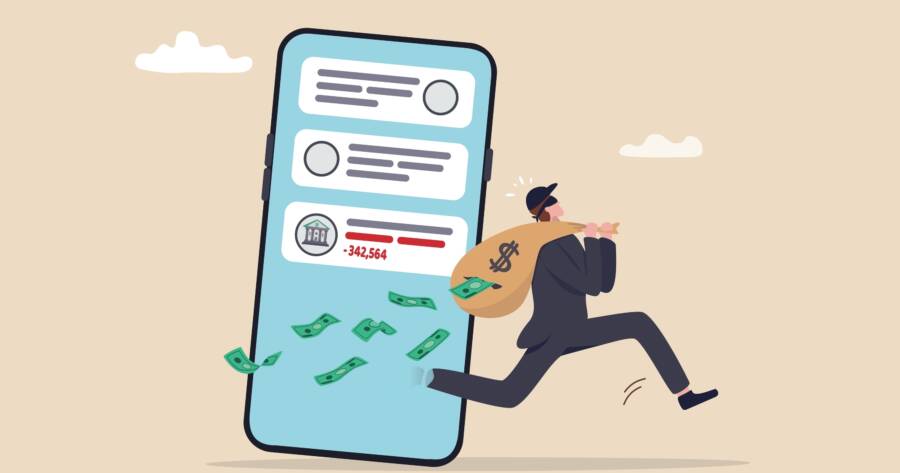Financial security has never been more important, yet the digital age has made it easier than ever for scammers and fraudsters to target unsuspecting victims. Cybercriminals use sophisticated tactics to steal personal information, drain bank accounts, and compromise financial security. With online transactions, digital banking, and mobile payments becoming the norm, protecting your money requires vigilance. By adopting smart security habits and recognizing common scams, you can safeguard your finances and stay one step ahead of digital threats.
Recognizing the Most Common Financial Scams
Scammers continually evolve their tactics to deceive consumers, often disguising their schemes as legitimate requests. Understanding the most common fraud tactics can help you avoid falling victim.
Types of financial scams to watch for:
- Phishing emails and texts: Fraudsters impersonate banks, government agencies, or trusted companies to trick you into providing sensitive information.
- Investment scams: Too-good-to-be-true investment opportunities promising guaranteed returns often turn out to be Ponzi schemes or fraudulent ventures.
- Romance scams: Scammers build online relationships to emotionally manipulate victims into sending money.
- Tech support fraud: Unsolicited calls or pop-up alerts claiming your device is infected often lead to scammers gaining access to your computer or financial information.
- Fake job offers: Scammers request upfront payments for job applications, background checks, or training that doesn’t exist.
How to protect yourself:
- Never click on links or download attachments from unsolicited emails.
- Verify company legitimacy before investing or sending money.
- Avoid sharing personal information with strangers online.
- Be cautious of urgent or high-pressure requests for money.
Strengthening Online Security for Financial Accounts
Your online financial accounts are prime targets for hackers. Weak passwords, unprotected devices, and public Wi-Fi connections create vulnerabilities that cybercriminals exploit.
Ways to secure your online finances:
- Use strong, unique passwords: Avoid common words and phrases, and use a mix of letters, numbers, and symbols. A password manager can help generate and store complex passwords securely.
- Enable two-factor authentication (2FA): Adding an extra layer of security to your bank and investment accounts can prevent unauthorized access.
- Monitor your accounts regularly: Set up notifications for transactions and review statements frequently to detect suspicious activity early.
- Avoid using public Wi-Fi for banking: Hackers can intercept data on unsecured networks, so always use a secure connection or a VPN.
- Update software and apps: Keeping your devices up to date helps patch security vulnerabilities that cybercriminals may exploit.
Protecting Against Identity Theft
Identity theft occurs when someone uses your personal information—such as your Social Security number, credit card details, or bank account info—to commit fraud. Recovering from identity theft can take months or even years, so prevention is key.
How to safeguard your identity:
- Shred sensitive documents: Bank statements, tax forms, and credit card offers should never be tossed in the trash without shredding.
- Freeze your credit: If you don’t plan on taking out new loans or credit cards soon, freezing your credit prevents unauthorized accounts from being opened in your name.
- Be cautious with social media: Scammers can use personal details shared online to impersonate you or guess security answers.
- Check your credit reports: Reviewing reports from Equifax, Experian, and TransUnion can help spot unfamiliar accounts or inquiries.
- Use identity theft protection services: Services like LifeLock or IdentityForce monitor for suspicious activity and provide alerts.
Avoiding Payment Fraud and Card Skimming
Debit and credit card fraud is one of the most common financial crimes. From skimming devices at ATMs to fraudulent online transactions, cybercriminals use various methods to gain access to your funds.
How to reduce your risk:
- Use contactless or mobile payments: Apple Pay, Google Pay, and similar services use tokenization, which makes transactions more secure than using physical cards.
- Inspect ATMs and card readers: Look for signs of tampering before inserting your card, especially at gas stations and standalone ATMs.
- Enable transaction alerts: Most banks allow you to receive real-time notifications for purchases and withdrawals.
- Use virtual credit cards for online shopping: Many banks offer disposable card numbers that help prevent fraud when making digital purchases.
Safeguarding Your Money Offline
While digital security is essential, protecting your money offline is just as important. Physical theft, check fraud, and old-fashioned scams still pose a threat.
Best practices for offline financial security:
- Secure important documents: Keep passports, Social Security cards, and financial statements in a locked safe.
- Be mindful of shoulder surfers: When using ATMs or entering PINs in public, ensure no one is watching.
- Avoid mailing checks: Checks can be stolen and altered, so use digital payments whenever possible.
- Limit cash carrying: Keep only the cash you need to reduce the risk of theft or loss.
Staying Vigilant to Keep Your Finances Safe
The digital age has made financial management more convenient, but it has also introduced new risks. Cybercriminals are constantly developing new tactics, making it essential to stay proactive about security. By adopting strong online protection habits, recognizing scams, and monitoring financial accounts closely, you can significantly reduce your risk of fraud and identity theft. Prioritizing financial security today can save you from costly and stressful consequences in the future.

